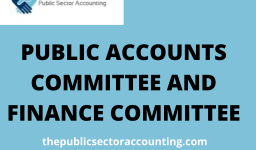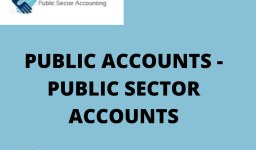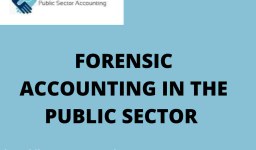Who Are The Users Of Public Sector Accounting? every information provided has its use and hence have a set of people who may be interested in that information and the same thing applies to public sector accounting information.
Do you maybe interested in what Is The Meaning Of Public Sector Accounting? before you learn about the uses of public sector accounting you must know the meaning of both the public sector and public sector accounting
This article will consider the users of public sector accounting
WHO ARE THE USERS OF PUBLIC SECTOR ACCOUNTING
The list below is the users of public sector accounting, though they may be other users that may have not added these are the main users.
- The legislature.
- The general public
- Donors and lenders
- Management of public sector organization
- Controller and accountant general (CAG) and Auditors
- Government agencies
The main objective of financial reporting by public sector entities is to provide information about the entity that is useful to users of GPFRs for accountability purposes and for decision-making purposes.
These are the entities that require GPFRs of public sector entities for accountability and decision-making purposes.
Users of GPFRs are defined to include service recipients, resources provider’s thus with social interest in particular services and the legislature.
These users may be analyses as follows
- The legislature.
This is an organ of the government which holds executives to account for the resources entrusted to them.
The legislature forms the parliament. This organ of the government needs the government financial information to serve as a basis to evaluate the extent to which these executive has undertaken their required activities within the power and authority granted to them as well as the resources.
This organ also required the government financial information in order to assess the various sources of revenue, the details of expenditure of various authorities, agencies, programs and projects.
- The general public
- Various groups such as corporate financial institutions, economist and financial analyst need government financial information so as to use as the basis for drawing efficient financial plans and policies. For instance, base on the information provided by the government financial statements, the government may be advice to increases or decrease expenditure
- Investors both internal and external such as bankers, businessmen and industrialist require annual statistical data on government financial position so as to be well assured whether or not to increase their level of investment.
- Private organizations, contractors and suppliers of goods also required this information to help in making a well-informed decision with respect to their relationship with the government.
- Donors and lenders
Donor and lender agencies who keep on granting aid and loan to the government enterprise need to know the details of the government financial report so as to help them to develop a firm basis to evaluate whether these enterprise are making a judicious use of the aid granted to them and also determine whether they will be in the position to service the loan interest and the principal amount as a whole.
Donor agencies need information on programs in which their aids were used for as well as a progress report on financed projects
- Management of public sector organization
The managers of the public sector organization also need the financial information of the organization they are managing so as to assess how best they can finance projects and programs.
They also need information on budget estimate and expenditure so as to enhance effective control of program and cost for reconciliation of actual results with expected.
- Controller and accountant general (CAG) and Auditors
CAG requires financial information of the government to use as a basis for developing as sound financial management and accounting system necessary to help in achieving the financial objective of the government.
Auditors, both internal and external, need the financial information of the public sector organizations to help them perform their duties effectively. That is to be able to give their opinion on the true and fair view of the institutions they audit.
- Government agencies
Revenue organization such as internal revenue service, custom excise and preventive service and value-added tax services needs to know the overall performance of the government in terms of revenue generation in order for them to plan their role and responsibilities in mobilizing funds for the government.
THESE USERS REQUIRE THE GPFRS FOR THE FOLLOWING PURPOSES:
- To assess the performance of the entity during the reporting period.
- Assessment of liquidity and solvency of the entity:
- To evaluate the sustainability of the entity’s service delivery and other operations over the long term
- To assess the capacity of the entity to adapt to changing circumstances
QUALITATIVE CHARACTERISTICS
These are the attributes that make that information contained in the GPFRs useful to users and support the achievement of the objectives of financial reporting. In accordance with the IPSAS conceptual framework, the following are the qualitative features of General Purpose Financial Report (GPFRs)
- Information must be faithful representation
- Information must be relevance
- Information must be understandable
- The information must be timeless
- Information must be comparable
- Information must be verifiable





Leave a comment